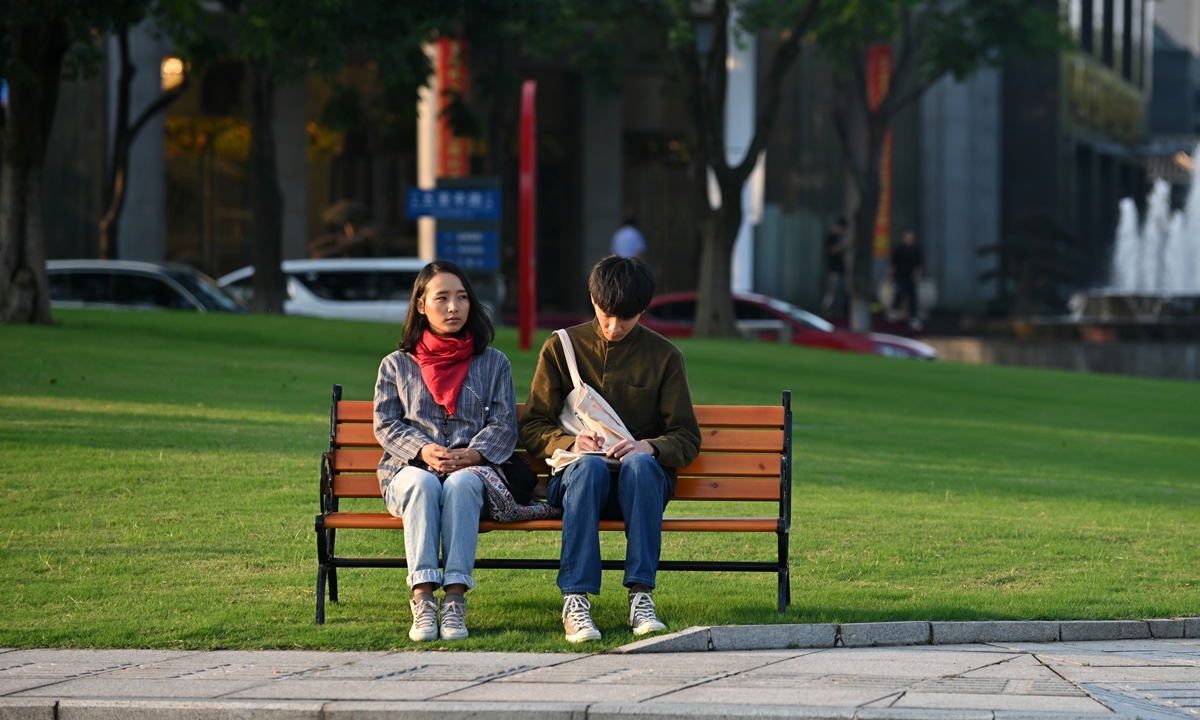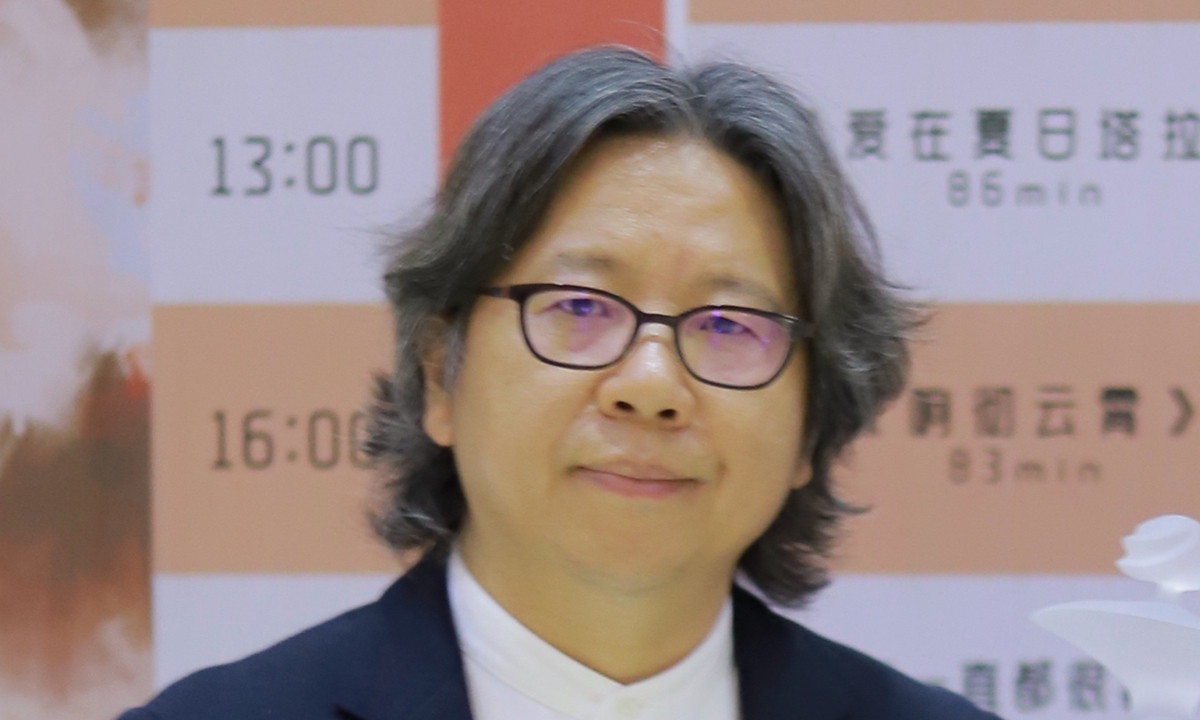ARTS / CULTURE & LEISURE
Chinese film inspires people to slow down, enjoy beauty of poetry
Power of poem

Promotional material for Poetry Photo: Courtesy of Ning Jingwu
Living amid the frenzy and madding chaos of modern city life, it may be hard to believe that there are still people writing poetry. But in fact they are everywhere, waiting for you to discover them.Working with this concept, Chinese film Poetry shines a light on the long-neglected world of poetry, exploring the tension between the lofty ideals of poets and the harsh realities of life, as well as the perseverance and passion it takes to stick to one's beliefs.
"Life is not only making a living, but poetry too," Ning Jingwu, the director of Poetry, told the Global Times, pointing out that in today's over-scheduled life, people would rather watch short videos lacking any literary nutrition than slow down and read a poem in their spare time.
"It is more important than ever to remember that poets and poetry still exist in the world," he added.
Starring young actor Ji Xiangning and veteran actor Wang Bozhao, who once starred in Ang Lee's drama film Pushing Hands, Poetry tells an inspirational story of a young construction worker named Hailuo who dreams of becoming a poet and lands a job at a poetry magazine named Caiwei.
However, just as he begins to make an impact, the editor-in-chief is diagnosed with a terminal illness.
The weight of saving the magazine falls onto Hailuo's shoulders, but despite his best efforts, he faces numerous setbacks and watches the fate of the publication hang in the balance.
The film has received critical acclaim, winning Best Picture at China's Wushan Goddess Art Film Festival in early April. It was also nominated for the 30th College Student Film Festival.
It has been listed as one of the key promotion films of one of China's national film overseas promotion centers and is set to be released in Chinese theaters in September, according to Ning.

Director Ning Jingwu Photo: Courtesy of Ning Jingwu
Deep poetic edificationPoetry was filmed in 2020, when the COVID-19 pandemic was overshadowing the entire world. This naturally increased the difficulty of the shoot for both the cast and crew.
Under a very limited budget, Ning and his crew insisted on finishing the film, hoping to inspire more people to read and write poetry.
Ning told the Global Times that the film's Chinese name Caiwei takes its name from a poem in Shijing, or The Book of Songs, the earliest collection of poems in China, highlighting the importance of poetry throughout history.
The film quotes a large number of poems, some of which are suggestions provided by some poetry and drama organizations and some were selected by the crew due to the meaning these works held for them during the shoot.
"The poems we picked are all modern poems that express poetry and life in the purest way as a tribute to contemporary poetry," he said, adding that the three-year-long COVID-19 pandemic gave people the opportunity to calm down and contemplate the meaning of life.
It also made people realize that in the face of a crisis, we must have a fighting spirit. Poetry can bring humanity that strength, he noted.
Hidden poets
Some of the people who appear in the film are not real actors but real left-behind children and migrant workers.
Humble people also deserve poetry and dreams. In the film, after saving 20,000 yuan ($2,900) for living expenses, Hailuo leaves his construction job and embarks on a journey to change his life.
While making the film, Ning said he was very pleased to see that poets are everywhere. They can be coal miners, delivery men, and even little kids. In his eyes, a person who can feel the beauty of life and reflect that beauty in their heart can be a poet.
The film's climax features the appearance of two young poets who are left-behind children from a rural area and a Tibetan area in Northwest China's Qinghai Province.
Their simple and pure poetry reignites the protagonist Hailuo's passion, demonstrating that poetry never truly dies, but rather continues through the generations.
Ning said that the inclusion of these child poets is crucial to the structure of the film.
The erosion of traditional culture by modernity is a theme explored throughout the work and the children's poetry represents the hope for the preservation of a cultural memory.
"Without a conscious effort to protect and promote traditional culture, we risk becoming 'cultural orphans' without any memories of our heritage," he said.
Some moviegoers who had watched the film at the film festival said that the theme felt very fresh, and that the film industry needs such a moving and poetic film to balance the dominance of commercial films.
Ning, the director, said he plans to showcase Poetry at major international film festivals in the hopes that more moviegoers overseas can see Chinese films, and to tell them that "Poetry is a reminder that poetry has the power to inspire and move us, even in the face of adversity."



